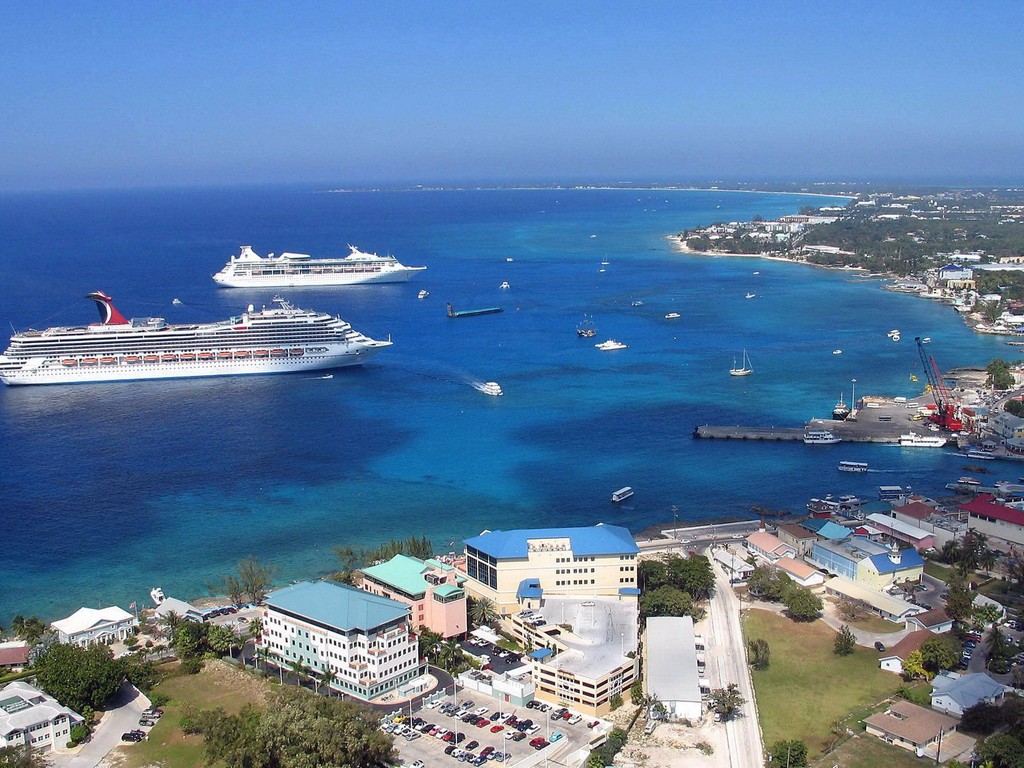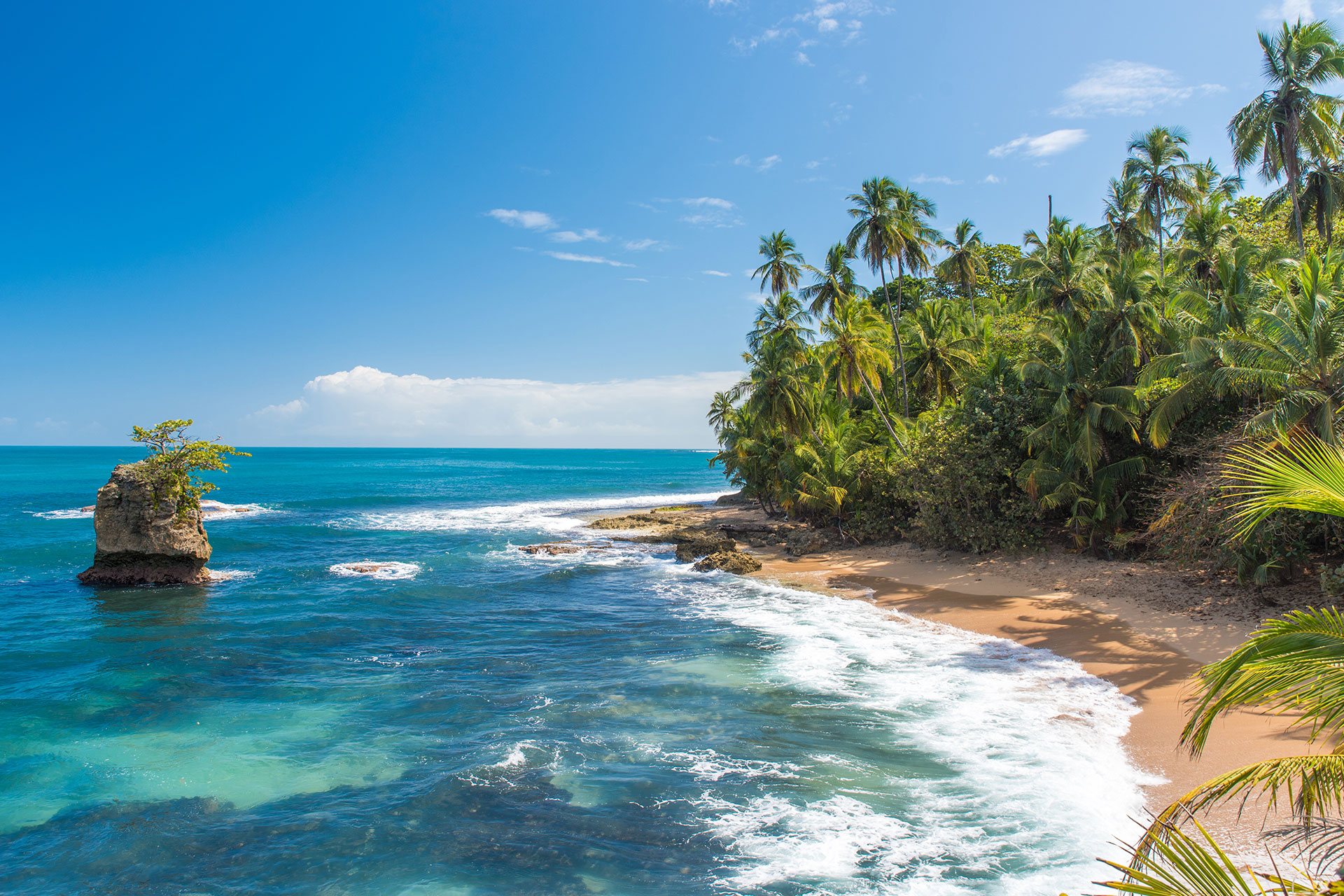

| Cruise Region : Caribbean, Panama Canal |
| Company : Norwegian Cruise Lines |
| Ship : Norwegian Gem |
| Journey Start : Thu 21 Nov 2024 |
| Journey End : Mon 02 Dec 2024 |
| Count Nights : 11 nights |
| Day | Port | Date | Arrival | Departure |
|---|---|---|---|---|
| 1 | Miami / USA | Thu 21 Nov | 16:00 | |
| 3 | Grand Cayman / Cayman Islands | Sat 23 Nov | 08:00 | 17:00 |
| 5 | Cartagena Bolivar / Colombia | Mon 25 Nov | 06:00 | 14:00 |
| 6 | Gatun / Panama | Tue 26 Nov | 05:00 | 15:00 |
| 7 | Column / Panama | Wed 27 Nov | 17:00 | 20:00 |
| 8 | Puerto Limon / Costa Rica | Thu 28 Nov | 07:00 | 16:00 |
| 10 | Harvest Cay / Belize | Sat 30 Nov | 09:00 | 15:30 |
| 11 | Cozumel / Mexico | Sun 01 Dec | 11:00 | 20:00 |
| 13 | Miami / USA | Tue 03 Dec | 07:00 |
Accommodation in a cabin of the selected category during the entire cruise (TV, telephone, shower/bath, hairdryer, air conditioning).
All-inclusive meals, excluding alcoholic beverages under the Freestyle program - free meal time.
Order food to your cabin 24 hours (additional charges apply for delivery between 00:00 and 05:00).
Set for making tea and coffee in the cabin.
Coffee, tea, water and iced tea during breakfast, lunch and dinner.
All entertainment on board (evening shows, nightclubs, live music, etc.).
Sports activities (table tennis, basketball, tennis and golf)
Participation of children in Children's clubs.
Fitness center, sports court, jogging track, swimming pools and jacuzzi.
Port fees, taxes and taxes.
For guests of Suite and Penthouse class cabins (in addition to all of the above):
Butler and concierge service.
Unpacking luggage on the day of check-in.
Champagne, liqueurs, fruits, bottled water and soda drinks (only for guests of Garden Villas and Owner`s Suites)
Champagne, bottled water and fruit on planting day.
Food delivery to the cabin 24 hours.
Minibar and Espresso/Cappuccino machine.
Pillow menu.
Bathrobe and slippers.
Priority check-in for the ship.
Escort to your cabin on check-in day.
Private transfer from port to airport (Garden Villas guests only).
Tips for staff (included in the bill and paid at the end of the cruise).
Casino, telephone, internet, video games.
Alcoholic and some non-alcoholic drinks.
Karaoke.
Bowling.
Laundry service.
Booking tables at alternative restaurants.
Registration of entry visas along the route.
Medical insurance.
Non-departure insurance (optional).
Air travel and transfers.
Excursions at ports of call.
Minibar in the cabin.
Personal services on board (SPA, beauty salon, laundry).

Miami, officially the City of Miami, is the cultural, economic and financial center of South Florida. Miami is the seat of Miami-Dade County, the most populous county in Florida. The city covers an area of about 56.6 square miles (147 km2), between the Everglades to the west and Biscayne Bay on the east; with a 2017 estimated population of 463,347, Miami is the sixth most densely populated major city in the United States. The Miami metropolitan area is home to 6.1 million people and the seventh-largest metropolitan area in the nation. Miami's metro area is the second-most populous metropolis in the southeastern United States and fourth-largest urban area in the U.S.
Miami is a major center, and a leader in finance, commerce, culture, media, entertainment, the arts, and international trade. The Miami Metropolitan Area is by far the largest urban economy in Florida and the 12th largest in the United States with a GDP of $344.9 billion as of 2017. In 2012, Miami was classified as an "Alpha−" level world city in the World Cities Study Group's inventory. In 2010, Miami ranked seventh in the United States and 33rd among global cities in terms of business activity, human capital, information exchange, cultural experience, and political engagement. In 2008, Forbes magazine ranked Miami "America's Cleanest City", for its year-round good air quality, vast green spaces, clean drinking water, clean streets, and citywide recycling programs. According to a 2009 UBS study of 73 world cities, Miami was ranked as the richest city in the United States, and the world's seventh-richest city in terms of purchasing power. Miami is nicknamed the "Capital of Latin America" and is the largest city with a Cuban-American plurality.
Greater Downtown Miami has one of the largest concentrations of international banks in the United States, and is home to many large national and international companies. The Civic Center is a major center for hospitals, research institutes, medical centers, and biotechnology industries. For more than two decades, the Port of Miami, known as the "Cruise Capital of the World", has been the number one cruise passenger port in the world. It accommodates some of the world's largest cruise ships and operations, and is the busiest port in both passenger traffic and cruise lines. Metropolitan Miami is also a major tourism hub in the southeastern U.S. for international visitors, ranking number two in the country after New York City.

Гранд Кайман — самый большой из трех островов входящих в Каймановы острова, которые юридически относятся к Великобритании. Именно на Гранд Каймане расположилась столица — Джорджтаун. Сам по себе остров это риф, высота которого достигает 24 метров. Вода у побережья — удивительно прозрачная, это связано с тем, что на острове нет ни одной реки. Посетив остров, Вы получите возможность увидеть место, где выращивают зеленых морских черепах, эта ферма расположена в округе Уэст Бей. Каймановы острова прославились своей необыкновенной красотой подводного плавания. Но в полной мере понять красоту этого места можно лишь посетив его.

The city of Cartagena, known in the colonial era as Cartagena de Indias, is a major port founded in 1533, located on the northern coast of Colombia in the Caribbean Coast Region. It was strategically located between the Magdalena and Sinú rivers and became the main port for trade between Spain and its overseas empire, establishing its importance by the early 1540s. During the colonial era it was a key port for the export of Peruvian silver to Spain and for the import of enslaved Africans under the asiento system. It was defensible against pirate attacks in the Caribbean. It is the capital of the Bolívar Department, and had a population 971,592 as of 2016. It is the fifth-largest city in Colombia and the second largest in the region, after Barranquilla. The urban area of Cartagena is also the fifth-largest urban area in the country. Economic activities include the maritime and petrochemicals industries, as well as tourism.
The city was founded on June 1, 1533, and named after Cartagena, Spain, settlement in the region around Cartagena Bay by various indigenous people dates back to 4000 BC. During the Spanish colonial period Cartagena served a key role in administration and expansion of the Spanish empire. It was a center of political, ecclesiastical, and economic activity. In 1984, Cartagena's colonial walled city and fortress were designated a UNESCO World Heritage Site.


Colon

Puerto Limón, commonly known as Limón (Spanish for "lemon"), is the capital city and main hub of Limón province, as well as of the cantón (county) of Limón in Costa Rica. It is the second largest city in Costa Rica, with a population of over 55,000, and is home of the Afro-Costa Rican community. Part of the community traces its roots to Italian, Jamaican and Chinese laborers who worked on a late nineteenth-century railroad project that connected San José to Puerto Limón. Until 1948, the Costa Rican government did not recognize Afro-Caribbean people as citizens and restricted their movement outside Limón province. As a result of this "travel ban", this Afro-Caribbean population became firmly established in the region, which influenced decisions not to move even after it was legally permitted. Nowadays, there is a significant outflow of Limón natives who move to the country's Central Valley in search for better employment and education. The Afro-Caribbean community speaks Spanish and Limonese Creole, a creole of English.
Puerto Limón contains two port terminals, Limón and Moín, which permit the shipment of Costa Rican exports as well as the anchoring of cruise ships. In 2016, the government pledged ₡93 million ($166,000) for a new cruise ship terminal for Puerto Limón.
Health care is provided for the city by Hospital Dr. Tony Facio Castro. Two small islands, Uvita Island and Isla de Pájaros, are just offshore.


Cozumel is an island and municipality in the Caribbean Sea off the eastern coast of Mexico's Yucatán Peninsula, opposite Playa del Carmen, and close to the Yucatán Channel. The municipality is part of the state of Quintana Roo, Mexico.
The economy of Cozumel is based on tourism, with visitors able to benefit from the island's balnearios, scuba diving, and snorkeling. The main town on the island is San Miguel de Cozumel.

Miami, officially the City of Miami, is the cultural, economic and financial center of South Florida. Miami is the seat of Miami-Dade County, the most populous county in Florida. The city covers an area of about 56.6 square miles (147 km2), between the Everglades to the west and Biscayne Bay on the east; with a 2017 estimated population of 463,347, Miami is the sixth most densely populated major city in the United States. The Miami metropolitan area is home to 6.1 million people and the seventh-largest metropolitan area in the nation. Miami's metro area is the second-most populous metropolis in the southeastern United States and fourth-largest urban area in the U.S.
Miami is a major center, and a leader in finance, commerce, culture, media, entertainment, the arts, and international trade. The Miami Metropolitan Area is by far the largest urban economy in Florida and the 12th largest in the United States with a GDP of $344.9 billion as of 2017. In 2012, Miami was classified as an "Alpha−" level world city in the World Cities Study Group's inventory. In 2010, Miami ranked seventh in the United States and 33rd among global cities in terms of business activity, human capital, information exchange, cultural experience, and political engagement. In 2008, Forbes magazine ranked Miami "America's Cleanest City", for its year-round good air quality, vast green spaces, clean drinking water, clean streets, and citywide recycling programs. According to a 2009 UBS study of 73 world cities, Miami was ranked as the richest city in the United States, and the world's seventh-richest city in terms of purchasing power. Miami is nicknamed the "Capital of Latin America" and is the largest city with a Cuban-American plurality.
Greater Downtown Miami has one of the largest concentrations of international banks in the United States, and is home to many large national and international companies. The Civic Center is a major center for hospitals, research institutes, medical centers, and biotechnology industries. For more than two decades, the Port of Miami, known as the "Cruise Capital of the World", has been the number one cruise passenger port in the world. It accommodates some of the world's largest cruise ships and operations, and is the busiest port in both passenger traffic and cruise lines. Metropolitan Miami is also a major tourism hub in the southeastern U.S. for international visitors, ranking number two in the country after New York City.